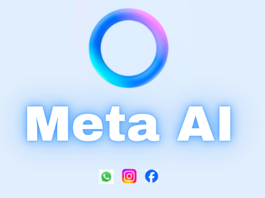In the rapidly evolving world of Artificial Intelligence (AI), a key role is often overshadowed by the limelight of groundbreaking algorithms and advanced machine learning models: that of the data annotator. This week, we delve into the significance of these unsung heroes whose meticulous work fuels the AI advancements we witness today.
Data annotation is at the heart of AI and machine learning, serving as the critical process of labeling or tagging data to make it understandable for AI models. This can include various tasks such as identifying objects in images for computer vision, transcribing audio for natural language processing, and more. As AI’s influence burgeons across sectors—from healthcare to finance, and autonomous driving—the demand for high-quality, annotated data has skyrocketed.
Data annotators shoulder a dual responsibility. They ensure that the data fed into AI models is accurate and effectively represents the task at hand, but they also bear the ethical responsibility of preventing biases in AI outcomes. Missteps in data annotation can lead to AI models that inadvertently perpetuate racial, gender, or other forms of bias, spotlighting the role annotators play in safeguarding against ethical pitfalls.
The introduction of generative AI has streamlined parts of the annotation process, automating the creation of labeled datasets and thus allowing annotators to focus on more nuanced tasks. Despite these advancements, human oversight remains irreplaceable, particularly in complex scenarios where nuanced understanding and judgment are required.
One might wonder, who are these annotators? They come from diverse backgrounds, often not requiring prior specialized skills but a keen eye for detail and a basic understanding of machine learning principles. A day in the life of a data annotator involves working with vast amounts of data, cleaning, merging, and, most importantly, labeling or annotating this data to create the datasets that AI models learn from.
As AI technologies continue to advance, the demand for skilled data annotators is expected to grow significantly. The market for data annotation is projected to expand, with emerging trends such as the rise of unstructured data, the need for high-quality annotations for large language models like GPT-3, and the increasing reliance on visual data annotation for computer vision tasks shaping the industry.
Yet, the work of data annotators is not without its challenges. It’s a time-consuming and meticulous process that requires a high level of concentration and expertise, especially as the complexity of AI systems and the volume of data grow. The task demands constant updating of annotation guidelines and schemas to keep up with evolving datasets, highlighting a continuous learning curve.
As we marvel at the latest AI innovations, it’s crucial to remember the foundational work of data annotators. Their role is indispensable in the development of AI technologies, bridging the gap between raw data and intelligent systems capable of understanding and interacting with the world around us. The future of AI, with all its potential for transformation and innovation, is intrinsically linked to the dedication and skill of these individuals. As the field of AI grows, so too will the importance of the humble data annotator, ensuring that AI systems are not only intelligent but also equitable, ethical, and effective.







